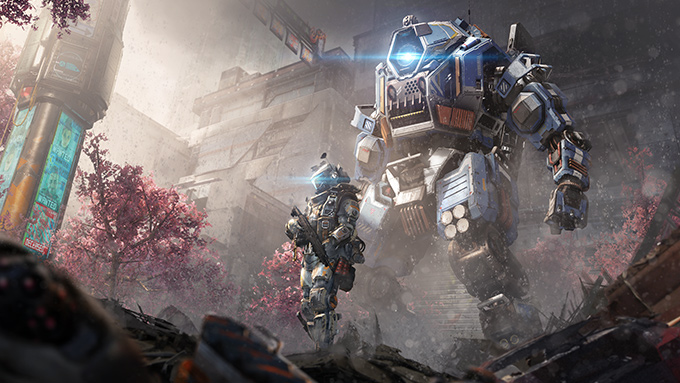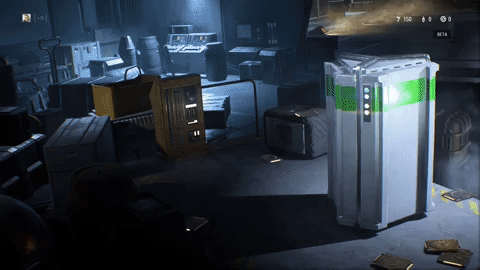Why abandoning the mold makes headlines.
Jennifer and I went to Hobby Lobby (think like a Home Depot for crafts and decorations (Home Depot is the Wal-Mart of hardware stores (If you don’t know what Wal-Mart is, just think of it as the soulless heart of capitalism (I don’t have time to explain capitalism)))) recently to pick up some stuff for a project she needed to have done for her job. As we were walking around, looking at the decorative nick-nacks and craft supplies, we came across a display of cactus decorations.
Jennifer loves cacti, at least for their visual splendor. She has succulents for her desk at work, which she has given cute names to. However, when we saw the display of cactus stuff, she lamented that her favorite thing has become popular enough to join pineapples and owls. Why? Because it meant that her thing had become a trend.
Trends aren’t a bad thing necessarily. I mentioned that even if her cactus infatuation (cactatuation?) had become popular enough to draw it into the mainstream, that only meant it would be easier to find the thing she liked in the future; at least until it faded back into obscurity.
Gaming really isn’t much different. See? It took me a while, but I made the connection!
Gaming Trends Can Be Good

Sometimes following a trend can lead to a genuinely great experience
I’m not seeking to prove somehow that trends in gaming are a bad thing. In fact, I love that there’s been a bit of a resurgence in focus on singleplayer in the minds of gamers. At the start of this generation of consoles, I had a tough time finding things that interested me on the Xbox One, and eventually the PS4, because most of the big titles hitting either platform had such a focus on multiplayer. While that trend could’ve been seen as good for the folks out there that love multiplayer games, it didn’t sit well with me.
The same goes for genres too. You may have noticed a few trends pop up in recent years, even during the last generation. Open-world games, MOBAs, hero shooters, MMO-lite games, roguelikes, futuristic shooters, battle royales, gritty modern combat shooters, zombie games, survival, horror, and survival-horror games have all had their trends.
Remember when Call of Duty broke into the modern era of combat, then slowly progressed into the futuristic? Other developers saw the bandwagon and tried their hardest to jump on. Electronic Arts did everything in their power to chase that cash cow by trying to revamp Medal of Honor into a franchise about Tier One operators in the modern day. When Call of Duty: Black Ops II released, the futuristic setting became popularized, making room for a swath of games like Titanfall, Call of Duty: Advanced Warfare, and others to hit the market.
Trends Can Be Awful Too

I could stand to see this sort of thing die out
Trends are great when it matches a gamer’s interests, but can also make for stagnancy. Call of Duty: Advanced Warfare released to some pretty lukewarm reception, and Call of Duty: Infinite Warfare sparked outright vitriol among fans of the series. Open-world games still hold a place in the hearts of many gamers, even if the genre is responsible for the rise of what I call bloatboxes. Hero shooters gained prominence with the release of Overwatch, then faded back out when others tried fruitlessly to break into that market.
What’s frustrating about these trends is that when gaming companies see a trend developing, or currently in progress, they often try to cash in. Sometimes they succeed, like with Fortnite Battle Royale following in the footsteps of the oddly successful PlayerUnknown’s Battlegrounds and the now forgotten H1Z1. Other times, like with Call of Duty: Infinite Warfare and Lawbreakers, they either spark outrage or just never take hold.
Where many companies seem to fail when chasing a trend, is they fail to innovate. I’m a firm believer that Battleborn failed because Gearbox Software didn’t do enough to differentiate their title from Blizzard’s Overwatch. That, and they released around the same time. Similarly, H1Z1 came along when Day Z and Rust had already established a firm foothold in the market of zombie survival games. Call of Duty: Infinite Warfare failed because all Infinity Ward did is bring Call of Duty even further into the future, without doing anything to differentiate the newest game from previous entries. Not to mention that all any Call of Duty fanatic seems to care about is Black Ops…
Still, there are some trends that need to die. Loot boxes, along with other predatory monetization tactics, do nothing to benefit the game they’re featured in, other than to further pad the wallets of the publishers which are definitely responsible for them. The same goes for season passes and preorder bonuses, but I don’t want to spend long harping on those, simply because I already covered that topic in great detail in a previous post.
Bucking Trends
Regular releases, whether annual or on longer schedules, tend to stick to what seems to be a script. Ubisoft games generally stick with an open-world, light RPG mechanics like skill trees, quest structures, and tons of collectibles. EA games are more varied, but like with Activision games, they play it safe. Shooters have a heavy focus on multiplayer and season passes for map packs, along with loot boxes for customization options now. Warner Bros. games are similar to Ubisoft, but with incredibly large, empty maps and ridiculous monetization tactics.
Before Call of Duty: WWII, the series focused on the far future. We went through a trend of grey/brown shooters. Remember the slew of zombie games? All the survival games on Steam now? And we’ve already seen the rise and decline (though not the death) of hero shooters.
But look at the games which capture the attention of the gaming community. Dishonored, Hellblade: Senua’s Sacrifice, NieR: Automata, Horizon: Zero Dawn, The Last of Us, Kingdom Come Deliverance, The Long Dark, Subnautica, SUPERHOT, and others break away from the trends present today, and that’s partly what sets them apart. Gamers notice when a game doesn’t just try to capitalize on something that seems popular, and instead seems to be designed with an original idea in mind. They can tell when a game is crafted with passion, rather than a priority of trying to cash in. That doesn’t mean that every game released needs to be something fresh and new, just that there’s room in the market for difference.
Following a trend is fine if you have something to add to the equation, but there’s only so many ways you can design a cactus decoration.
What do you think? Obviously trends aren’t wholly a bad thing, but do you think game companies can do better, or is there nothing wrong with the way things are? Are there any games that you feel deserve more attention for bucking trends?
Did you like this post? You should click “Like” if you did. Feel free to follow Falcon Game Reviews as well. You can also find Falcon Game Reviews on Twitter, Facebook, Discord, or even send a direct email to falconreviewsblog@gmail.com!

Game companies can always do better, unfortunately we as consumers don’t always give them incentive to do so. When games that are considered “bad” and sales disappointments, like Advanced Warfare and Infinite Warfare, dwarf the sales of all the games you mentioned combined I can see where big companies would shy away from trying new things. It doesn’t help that some companies have overly inflated expectations of what their games should do commercially either (ie. Square with their declaration that the Tomb Raider reboot was a sales disappointment despite selling 5m copies).
I’m glad that there are teams that are willing to take a chance on things that buck the system (Hellblade, Superhot, etc…) or are given the opportunity to make something special within that system (Horizon, The Last of Us). But we need those trendy, mass market titles too because without the success of Halo or Gears, we wouldn’t get things like Sunset Overdrive. Without Battlefield we don’t get Mirror’s Edge. Without Call of Duty… OK I got nothing here.
Ultimately though I want both. I want Call of Duty but I also want Superhot. I want Fortnite but I also want Horizon.
LikeLiked by 1 person
the thing with gaming trends is that although you may not necessarily enjoy the game there is a social side that comes with it which encourages you to jump on that bandwagon, fitting in is all that seems to matter these days
LikeLike
[…] from jumping straight into the fire with him, trying to find the right answer. It is posts like this and this that keep making me coming back for more […]
LikeLike
[…] I dearly miss my old favorites, but I can at least acknowledge that things change. Brands evolve, trends develop, and franchises […]
LikeLike